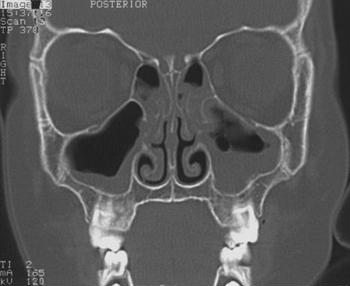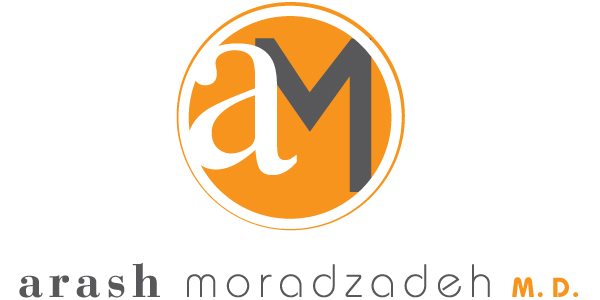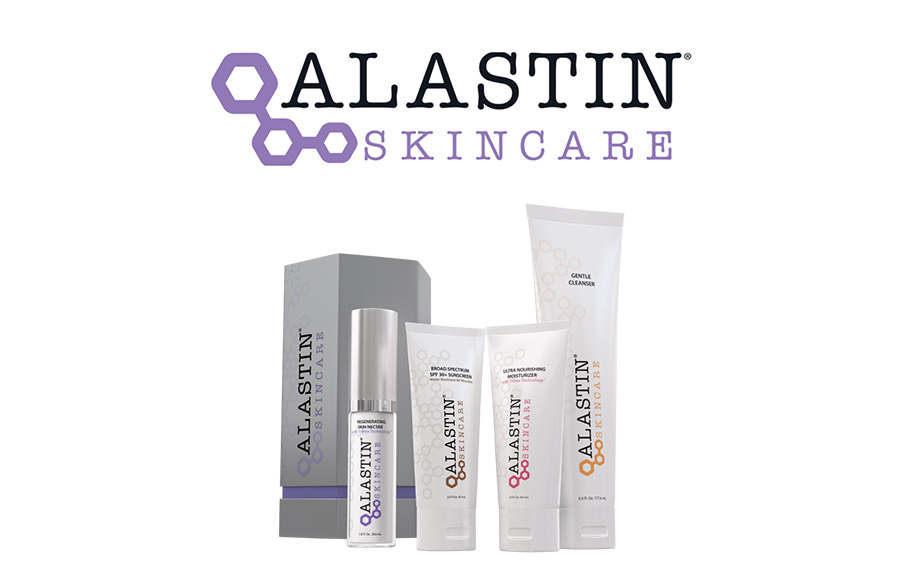Serving Beverly Hills, Los Angeles, Santa Barbara and surrounding areas
If you experience chronic bouts of sinus infections, nasal congestion and post-nasal drip, you may suffer from sinusitis. Typical cases of sinus infections can be treated with a nasal decongestant and saline spray, sometimes coupled with an antibiotic.
However, if your symptoms worsen or you experience these problems consistently, you may want to consider sinus surgery as an option. The goal of this procedure is to flush out infected material, open up blocked sinus passages and keep enough healthy tissues so that the nose and sinuses can function normally.

After documenting your symptoms, Dr. Moradzadeh will typically treat you with a variety of medical and natural homeopathic remedies. If these treatments do not help, Dr. Moradzadeh will request a CT scan of your sinus/nasal area to check for any abnormalities. These could include dense infection of the sinus cavities, swelling, polyps, small drainage openings the sinus cavities, a deviated septum, and enlarged turbinates. He will then determine, based on the findings of the CT scan, if sinus surgery is a viable option.
Understanding the Surgery
There are several types of procedures used in sinus surgery. Dr. Moradzadeh can advise you as to which is the best option.
- Balloon Sinuplasty – An inflatable balloon is placed at the narrow end of a catheter that is inserted into the opening of the sinus cavity and gently inflated to create a larger opening for better sinus drainage and pressure release.
- Endoscopic Surgery – The endoscope, a tube-like camera, is used to navigate through the nasal system and sinus cavities, allowing the surgeon to properly drain the cavities, remove any unwanted tissue, and expand the sinus openings. With advanced endoscopic sinus procedures performed by Dr. Moradzadeh, no incisions are made on the nose. No packing is needed after surgery and patients show rapid recovery with minimal discomfort.
- Open Sinus Surgery – In this procedure the surgeon makes an incision on the outside of the nose directly above the sinus cavities in order to remove decayed tissue and unblock any sinus openings, allowing for proper drainage. This is very rarely needed.
What to Expect Afterwards
When properly administered, sinus surgery is highly effective. However, the post-surgery care is an important aspect to consider. In general, regular check-ups (every 3 weeks for the first 3 months) and nasal cleanings are advisable after the surgery is done.
Some patients experience minor bleeding, swelling and headaches after surgery. Swelling can be reduced by putting an ice-pack on the face, bridge of the nose, and eyes as much as you can tolerate. This will also help with postoperative edema and pain.
Moderate bleeding from the nose is normal, as well, and will gradually decrease. The doctor will advise you not to take aspirin, aspirin-containing medications, or non-steroidal anti-inflammatory medications (such as ibuprofen/Advil, Naprosyn, and others) following the surgery, because such medications may increase bleeding and slow clotting at the surgical site.
It’s also best to stick to a light, soft and cool diet — and to avoid hot liquids for first 2 days — after the surgery. Although you may feel hungry immediately after surgery, eating lightly will help prevent postoperative nausea and vomiting. If nausea persists, the doctor may prescribe medication to reduce or eliminate vomiting.
The doctor may also prescribe antibiotics after surgery, and if so, you should finish the entire prescription. Some form of a narcotic may also be prescribed for pain and should be taken as needed. Many patients will take only regular Tylenol.
Depending on the extent of the surgery, recovery may take a few days. It may take up to 3 to 5 days to feel completely back to normal. It’s best to limit physical exertion and avoid activities like running, exercising, and weight lifting that can increase your heart rate or blood pressure for 1 week.
One of the most important things you can do after surgery is nasal irrigation. The day after surgery, patients should use a saline nasal spray several times per day to prevent crusts from forming in the nose. Dr. Moradzadeh will advise you when to discontinue the nasal spray and will also let you know the best way to irrigate the sinuses.
Is Sinus Surgery Right For You?
Some concrete reasons to consider sinus surgery include:
- Infections that have spread inside the bone
- Misshapen sinus cavities or openings with frequent infection
- Polyps growing in the sinus area, unresponsive to medical therapy
- Fungal nasal infections
- Cancer of the sinus
After an extensive examination, Dr. Moradzadeh will advise you on whether it’s a viable option for you. Did you know Dr. Moradzadeh uses state-of-the-art microdebriders to open your sinus cavities with maximal precision and minimal trauma? He frequently uses a hybrid technique where balloons are used for select sinuses and microdebriders and other endoscopic techniques are used for sinuses that normally require more extensive surgery. Dr. Moradzadeh also uses the premier intraoperative sinus tracking CT imaging system to maximize safety and precision in revision sinus surgical cases.


